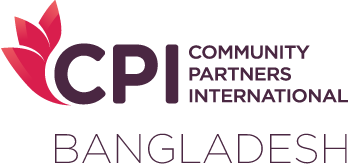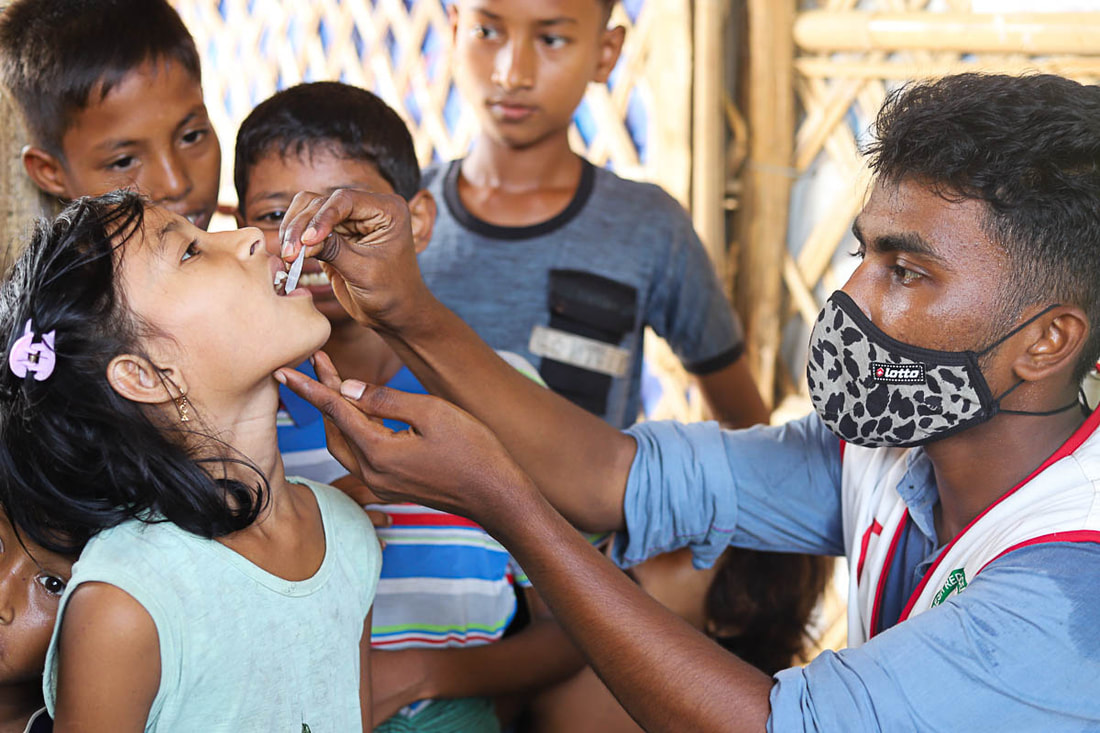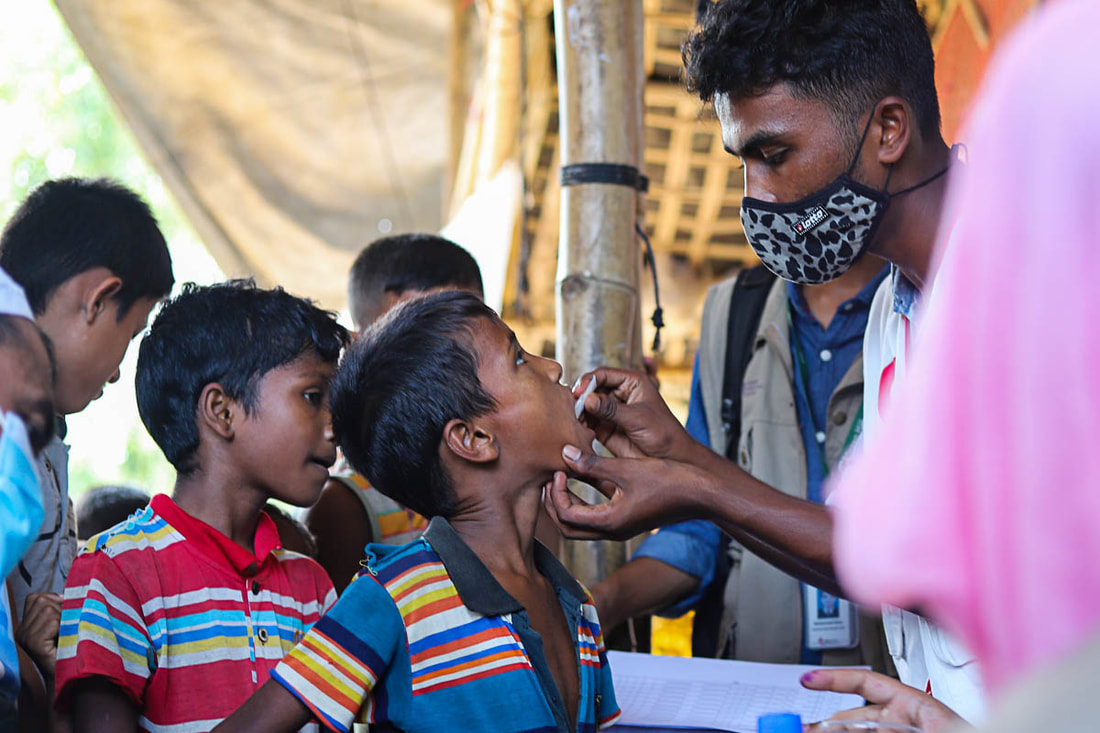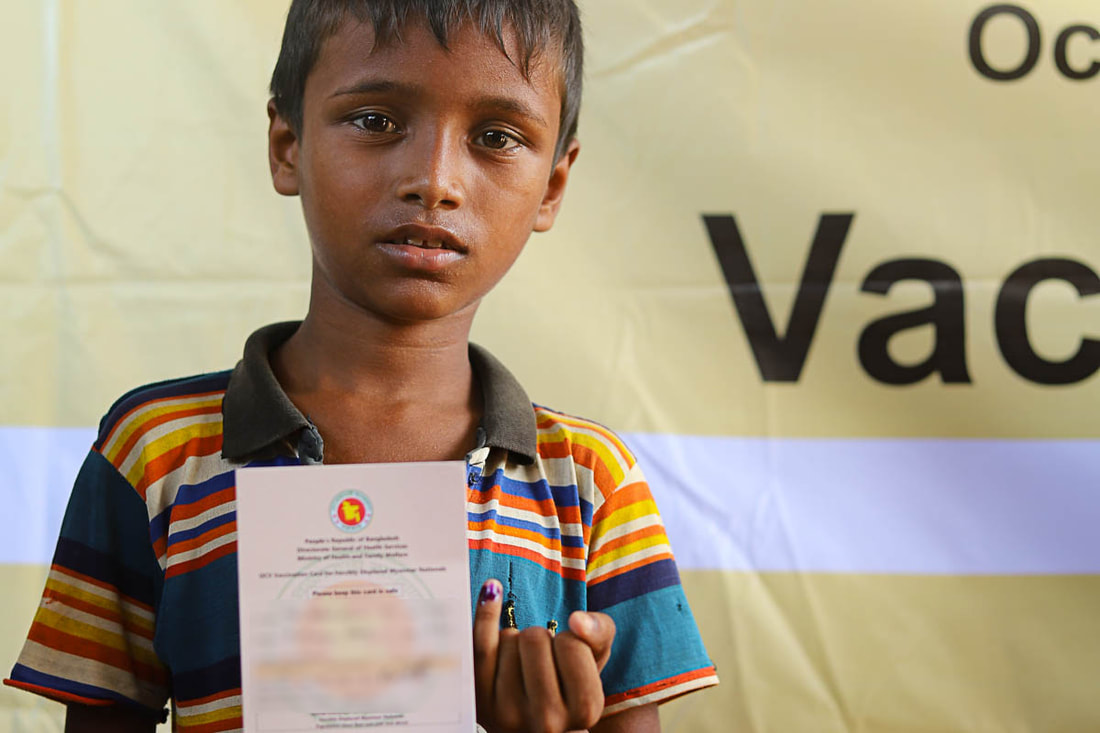|
For Rohingya refugees in Kutupalong Refugee Camp, Bangladesh, cholera is an ever-present threat. The cramped and crowded conditions, limited access to water, sanitation and hygiene services, and seasonal flooding create an environment in which cholera can quickly take hold. Rohingya volunteers supported by Community Partners International (CPI) and local partner Green Hill are assisting a cholera vaccination campaign that has successfully reached 96% of refugees in their catchment areas since October 10. Cholera is an acute diarrheal infection caused by bacteria in contaminated water and food. Globally, up to four million cases of cholera are estimated to occur each year, with as many as 140,000 deaths. If left untreated, the disease can kill within hours. Malnourished children are especially vulnerable due to their weakened immune systems. In the aftermath of the severe flooding in areas of Kutupalong Refugee Camp in July and August this year, health data showed a rapid rise in cases of acute watery diarrhea. This indicator underlined the increased potential for a cholera outbreak among the refugee population. In response, the Bangladesh Ministry of Health launched a cholera vaccination drive in October for all Rohingya refugees above one year of age. To support the vaccination effort, Rohingya volunteers supported by Community Partners International and local partner Green Hill mobilized in Camps 1W and 4 to get the word out to refugee households and encourage people to get vaccinated. Embedded in their communities and trusted by fellow refugees, these volunteers have proven highly effective at supporting the rollout of vaccination campaigns in the past. Since October 10, the volunteers have conducted house-to-house visits in their catchment areas, sharing information about the vaccine, the vaccination process, and encouraging people to participate. With their support, health authorities in these two camps were able to vaccinate more than 96% of eligible refugees (more than 17,000 people) in 10 days. The initiative will continue until October 24 to try and reach the remaining unvaccinated persons. Alongside their support of the cholera vaccination program in Kutupalong Refugee Camp, Rohingya volunteers are also actively assisting with the COVID-19 vaccine rollout and have achieved similar results in their catchment areas. Their repeated success underlines the value of engaging community-based resources in support of key public health initiatives, such as vaccination campaigns, in refugee contexts.
Comments are closed.
|
AuthorCPI Admin Archives
August 2023
Categories
All
|




 RSS Feed
RSS Feed